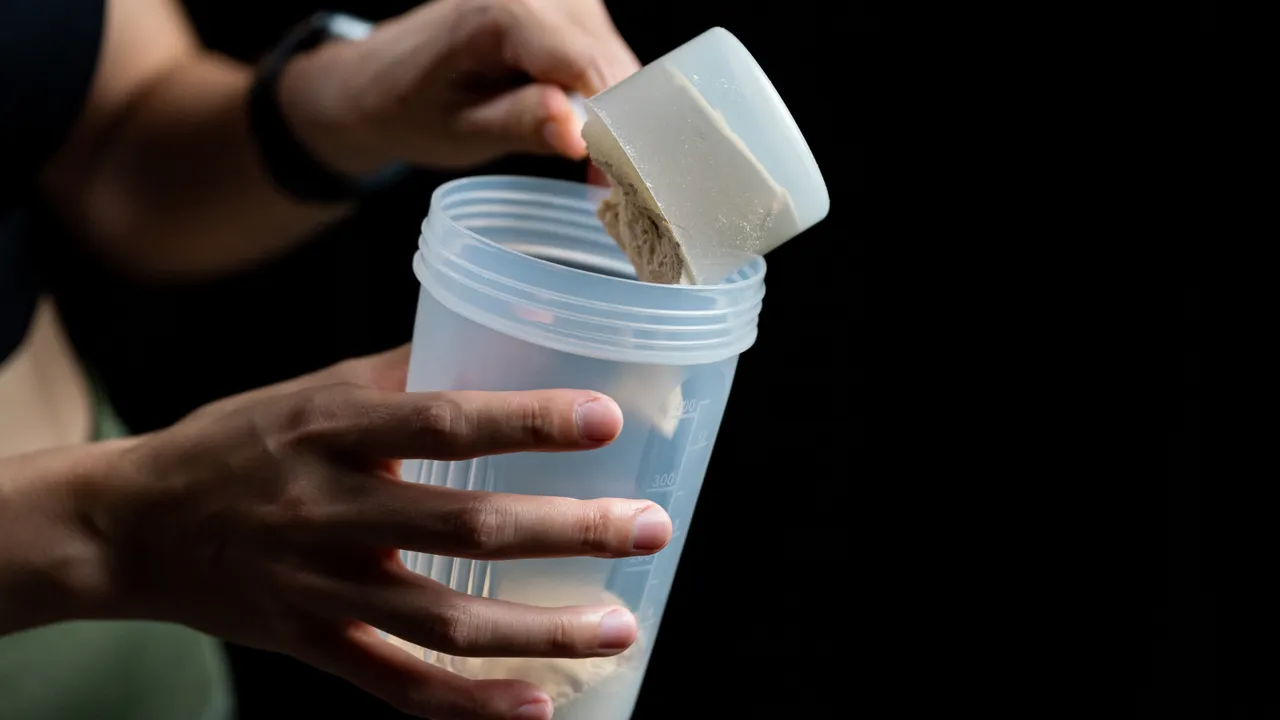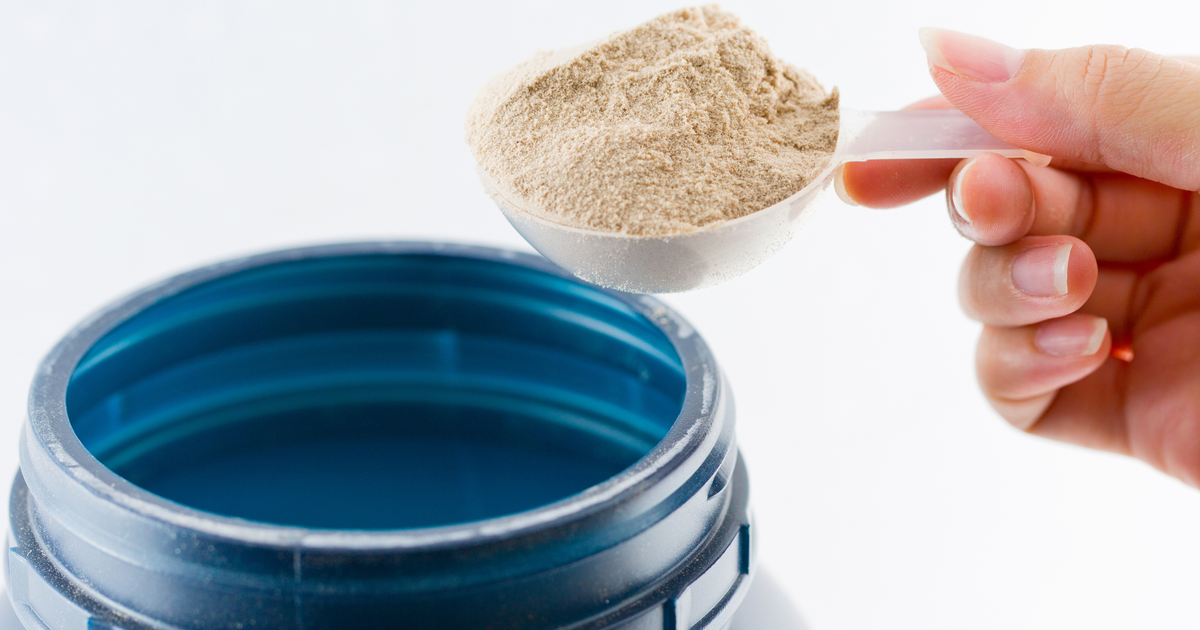In the winter of 2021–2022, psychiatrist Mohamad Matour noticed a trend in his Palo Alto practice: More and more patients were taking creatine to support brain health. Not because he’d recommended it—nor had their primary doctors—but because pod-star Andrew Huberman had. “Many patients have told me they discovered creatine through that podcast,” says Matour.
The Stanford neurobiology professor had discussed the ingredient’s potential cognitive benefits on his Huberman Lab podcast, a top health and science podcast. He also mentioned that he takes creatine daily. So does bro-whisperer Joe Rogan. Mel Robbins, founder of 143 Studios, takes it too. The holy trinity of podcast personas is shining their halos on creatine for cognitive support.
Simultaneously, creatine as a “toning” and “anti-aging” supplement for women went viral on TikTok (7.9 billion views), and brands were riding the wave (e.g., Sheatine by Reignite: Wellness). It was as if an over-buffed gym bro—the ingredient’s OG demographic—loaded a cannon with the powder and aimed it at the sky: Creatine is everywhere.
Creatine sales reached $484 million in 2024 and are forecast to hit $545.6 million in 2025 on 12.7% growth, according to NBJ research. While NBJ does not break down creatine sales by condition, NBJ Market Research Analyst Erika Craft says she is seeing “a lot of interest for creatine in brain health supplements and also in the healthy aging/longevity space.” The Vitamin Shoppe’s 2023 Trend Report revealed creatine sales were up 120% year-over-year. Globally, sales will hit $4.21 billion, at a 25.2% growth rate through 2030, according to Grand View Research.
At least some of that growth is being driven by brain health, adding new momentum to a well-known ingredient that’s suddenly the next big thing.
Science backed
Our bodies naturally produce creatine, which is made up of the amino acids glycine, arginine and methionine. We can also consume it via meat, poultry and fish. Creatine increases the body’s stores of phosphocreatine, a molecule used to produce new adenosine triphosphate (ATP) from “used” ATP, or adenosine diphosphate (ADP), during high-intensity exercise. ATP is the molecule the body uses to store and deliver energy for nearly every biological process—from muscle contractions to brain activity. And while the early bodybuilding creatine fans used it to promote gains in their guns, it’s the mental muscle that is the body’s big energy hog. The brain uses more than 20% of our body’s energy despite only making up around 2% of our weight.
“I often explain to consumers that creatine acts like a rechargeable battery for brain cells,” says Nicole Avena, chief science officer of BrainMD, maker of Smart Creatine+. “It helps buffer energy demands during mentally taxing tasks, whether that’s decision-making, emotional regulation or sustained attention. The same mechanism that supports muscle recovery also supports mental stamina.”
“Creatine in the body not only helps power the regeneration of ATP so that your muscles and body can move but also helps power things like neuronal signaling, which requires energy and also impacts mood states,” says nutrition research expert Doug Kalman, co-founder of Substantiation Sciences, a Florida-based consultancy. “These brain bioenergetics are really important as related to cognitive function and mental health or mood states,” he explains.
How essential is creatine to brain function? People born with a genetic defect that prevents them from metabolizing creatine face brain damage and developmental disability, says Kalman.
Is there consensus among scientists about creatine as a brain support ingredient? “We’re not yet there,” says Kalman, “but early research is definitely showing creatine playing a role in mental well-being, creatine playing a role in cognitive abilities of both younger and older people. Also, the research illustrating creatine as a life cycle nutrient is growing. So we have growing acceptance, but not global acceptance.” There is also a legacy of safety. Creatine is one of the most-studied nutrients in sports medicine. On top of that comes price: Creatine is cheap.

Meta-analysis findings suggest promising results for cognitive function in older adults.
Research highlights
A 2024 meta-analysis of 16 creatine studies published in Frontiers in Nutrition concluded that creatine supplementation may improve memory, attention and information processing in adults.
A 2018 review of six randomized controlled trials published in Experimental Gerontology concluded that creatine may improve short-term memory and intelligence/reasoning of healthy individuals and that findings suggest potential benefit for aging and stressed individuals, including sleep-deprived people. Reviewers also found that for certain populations with lower creatine levels, such as vegetarians and the elderly, creatine may also improve certain aspects of memory.
A 2025 systematic review in Nutrition Reviews of six studies of older adults (55-plus) found that the current, though limited, evidence suggests that creatine may be associated with benefits for cognition in generally healthy older adults. This paper, and others, underscores the need for further research.
“Research shows that when creatine is added to cognitive behavioral therapy, for those people who are depressed, there seems to be about a 35% improvement in their reaction to therapy,” says Kalman. “Some preliminary research even suggests it could help with symptoms of depression by supporting brain energy and boosting the production of feel-good neurotransmitters like dopamine and serotonin. That’s particularly relevant for women experiencing perimenopause and menopause.”
Explicitly relevant for those populations are the results of a small study published in the Journal of the International Society of Sports Nutrition and included in the Proceedings of the International Creatine Conference 2025 in Munich, Germany. The conference was organized by, among others, the Creatine for Health Scientific Advisory Board, sponsored by Alzchem Group AG, makers of Creapure and Creavitalis. Researchers found that creatine supported sleep—and cognition—among peri-and post-menopausal women when combined with resistance training. “One-third of postmenopausal women went from scoring mild in the cognitive impairment range to within the normal range … a clinically meaningful shift,” says Lauren Hall, one of the study’s authors. “Our findings suggest that creatine may help stabilize sleep patterns and support cognitive resilience during hormonal transitions.” Indeed, research backs creatine for sleep support—even as a pick-me-up after a lousy night’s sleep. A study published in Scientific Reports in 2024 reported that taking a single, high dose of creatine monohydrate could help shake off the fog of a sleepless night. Those findings challenge the belief that creatine only takes effect after weeks of continued use.
Holding back the hype
“We’re definitely seeing consumers very interested in creatine for cognitive health, and there’s definitely compelling early science,” says Afif Ghannoum, CEO, CPG Radar, which helps brands and ingredient companies accelerate innovation and business development using big data and AI. “The challenge for brands is how do you tap into that without getting ahead of the science?”
Creating the creatine gummies consumers seek for convenience has been another challenge, he says. The moisture and heat used in most gummy manufacturing can degrade creatine into creatinine. In 2024, NOW tested multiple brands of creatine gummies and found that about 46% failed to meet label claims. This year, another independent research lab found four of six popular creatine gummy products sold on Amazon had essentially no creatine at all.
Creatine’s potential in the brain support category is “super exciting,” says Ghannoum, “but if consumers start feeling that some of the claims and formats are really not rigorously vetted … you might lose them for good.”
The lack of decisive long-term clinical trials is another hurdle, he says. Since creatine is generic, brands are not going to have protected positioning on it, so there is no incentive to fund clinicals, says Ghannoum, who is also a biotechnology attorney. “I think what you might see are people trying to combine creatine with some of the well-known cognitive ingredients that already have good consumer sentiment, with good science, and then there could be interesting potential IP.”
Which brain health consumer segments present the strongest market fit for creatine-based formulations? All of them, according to Ghannoum. CPG Radar breaks the category into five segments for research, from consumers aiming to boost productivity to consumers seeking neuroprotection as they age. “They’re all interested in creatine,” says Ghannoum.

The body naturally produces creatine, but the amount decreases with age.
Excitement and expectations
Even with all the excitement, the science and cash registers ringing in the aisles and online, is it possible the industry is underestimating creatine’s potential as a primary cognitive ingredient? “Without a doubt,” says Kalman, noting the ingredient’s appeal as a lifecycle nutrient, with the potential to support the brain through development, performance and healthy aging (our bodies produce less creatine as we age).
Creatine is already well into a rebrand as a strength and energy support supplement for active women. Positioning for women’s brain health may also have enormous potential. “Especially for peri- and menopausal women,” says Hall, the researcher behind the postmenopausal study in the Journal of the International Society of Sports Nutrition mentioned above.
In her study, the perimenopausal group demonstrated a statistically significant improvement in perceived sleep quality (p = .0086), alongside a near-significant reduction in nighttime awakenings. “These changes suggest more consolidated, restorative sleep,” she says. “This matters because sleep disruption is a well-documented contributor to cognitive complaints during menopause, including brain fog, memory lapses and reduced executive function. By stabilizing sleep patterns, creatine may indirectly support cognitive resilience—helping the brain recover, consolidate memory and maintain attentional control during hormonally vulnerable periods.” Combine this with the role creatine may have in preserving lean body mass, and growing evidence it may play a role in supporting healthy bone metabolism, and you have a women’s product that packs a powerful one-two punch for aging consumers.
“I see significant potential for creatine among menopausal women experiencing brain fog,” says Avena. Underserved populations also include older adults facing age-related cognitive decline and high-stress professionals dealing with mental fatigue. These groups often struggle with energy depletion and inflammation, which are two areas where creatine has shown promise.
Creatine has clearly moved beyond its bodybuilding roots, fueled by viral social media, the pod squad megaphone and emerging science on its cognitive and healthy aging benefits. While early research suggests creatine may support memory, mood and sleep—especially in underserved groups like perimenopausal women and older adults—brands still face the challenge of developing stable, science-backed formats and messaging that doesn’t outpace the evidence.
For formulators and brands, “it’s important to prioritize delivery, education and synergy,” Avena says. “Consumers need products that are easy to use, backed by science and clearly positioned as cognitive tools, not just athletic aids.”
This article originally appeared in the Nutrition Business Journal Brain Health Issue. Subscribe today to the Nutrition Business Journal.

